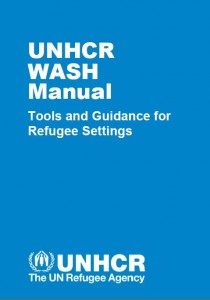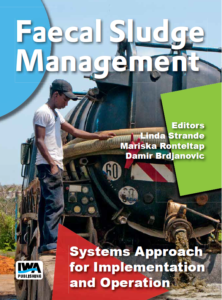
This book compiles the state of knowledge of this rapidly evolving field, and presents an integrated approach that includes technology, management and planning. It addresses the planning and organization of the entire faecal sludge management service chain, from the collection and transport of sludge and treatment options, to the final enduse or disposal of treated sludge. In addition to providing fundamentals and an overview of technologies, the book goes into details of operational, institutional and financial aspects, and provides guidance on how to plan a city-level faecal sludge management project with the involvement of all the stakeholders.
To know more: www.sandec.ch/fsm_book
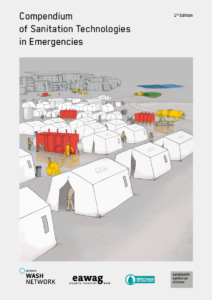
This document is a comprehensive and user-friendly capacity development tool for sanitation solutions in emergency settings. It provides detailed information on key decision criteria for tried and tested emergency sanitation technologies and information on cross-cutting issues such as inclusive design, soil analysis and institutional framework, relevant to come up with informed sanitation technology decisions in emergencies.
www.emersan-compendium.org
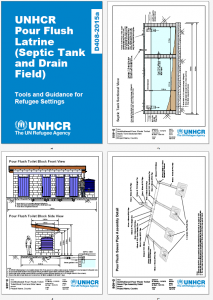
This document contains documentation to help UNHCR and WASH actors build pour flush institutional latrines in refugee settings with septic tanks and drain fields. The package includes: Technical Drawings; Step by Step Construction Drawings; Bills of Quantity; Material and Workmanship Specifications; and Design Calculations.
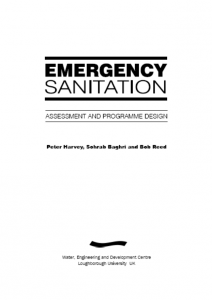
The book Emergency Sanitation: Assessment and programme design has been produced to assist those involved in planning and implementing emergency sanitation programmes. The main focus of the book is a systematic and structured approach to assessment and programme design. It provides a balance between the hardware (technical) and software (socio-cultural, institutional) aspects of sanitation programmes, and links short-term emergency response to long-term sustainability. The book is relevant to a wide range of emergency situations, including both natural and conflict-induced disasters, and open and closed settings. It is suitable for field technicians, engineers and hygiene promoters, as well as staff at agency headquarters.
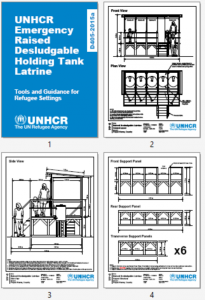
This document contains documentation to help UNHCR and WASH actors build emergency raised desludgable latrines in refugee settings. The package includes: Technical Drawings; Step by Step Construction Drawings; Bills of Quantity; Material and Workmanship Specifications; and Design Calculations.
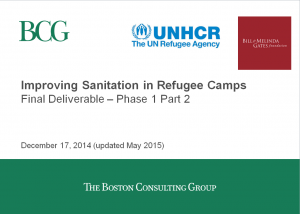
The report examines the feasibility of a wide range of standard sanitation technologies in addition to sanitation innovations in refugee contexts (including miniaturized biogas, reinvented toilets, new processor technologies, SMS dispatching, pay per use toilets, sale of by-products). Technologies were evaluated based on upfront investment cost; technology viability, suitable size and transportability; flexibility and resilience; and value for money.
Organisations: BCG. Categories: WASH Research Documents.
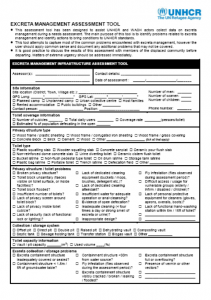
This assessment tool has been designed to assist UNHCR and WASH actors collect data on excreta management during a needs assessment. The main purpose of this tool is to identify problems related to excreta management and identify actions to bring conditions to UNHCR standards.








